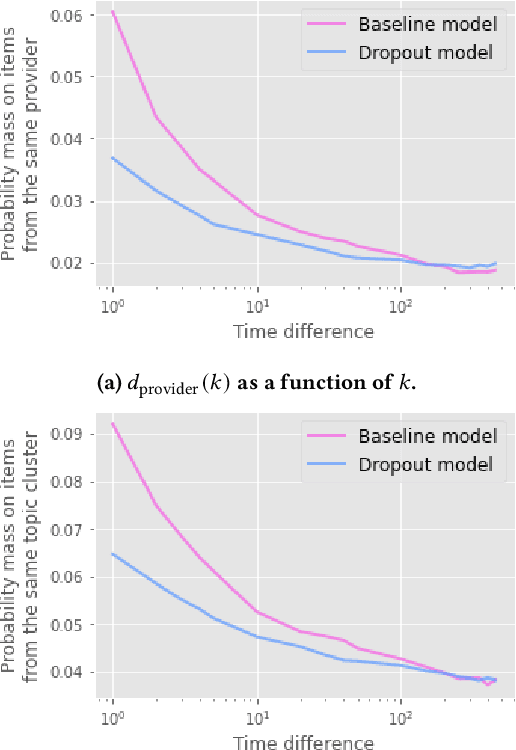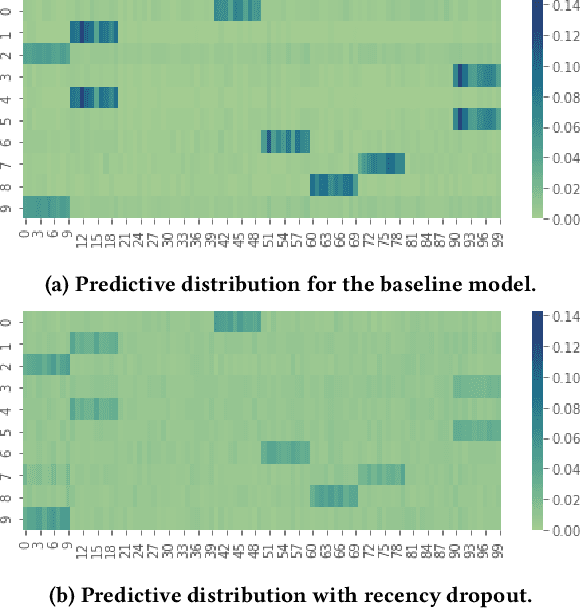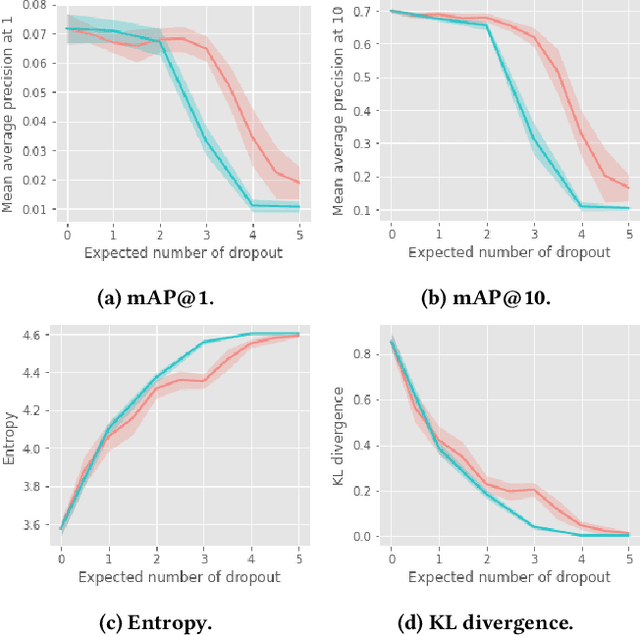Jingchen Feng
Learning from Negative User Feedback and Measuring Responsiveness for Sequential Recommenders
Aug 23, 2023


Abstract:Sequential recommenders have been widely used in industry due to their strength in modeling user preferences. While these models excel at learning a user's positive interests, less attention has been paid to learning from negative user feedback. Negative user feedback is an important lever of user control, and comes with an expectation that recommenders should respond quickly and reduce similar recommendations to the user. However, negative feedback signals are often ignored in the training objective of sequential retrieval models, which primarily aim at predicting positive user interactions. In this work, we incorporate explicit and implicit negative user feedback into the training objective of sequential recommenders in the retrieval stage using a "not-to-recommend" loss function that optimizes for the log-likelihood of not recommending items with negative feedback. We demonstrate the effectiveness of this approach using live experiments on a large-scale industrial recommender system. Furthermore, we address a challenge in measuring recommender responsiveness to negative feedback by developing a counterfactual simulation framework to compare recommender responses between different user actions, showing improved responsiveness from the modeling change.
Recency Dropout for Recurrent Recommender Systems
Jan 26, 2022



Abstract:Recurrent recommender systems have been successful in capturing the temporal dynamics in users' activity trajectories. However, recurrent neural networks (RNNs) are known to have difficulty learning long-term dependencies. As a consequence, RNN-based recommender systems tend to overly focus on short-term user interests. This is referred to as the recency bias, which could negatively affect the long-term user experience as well as the health of the ecosystem. In this paper, we introduce the recency dropout technique, a simple yet effective data augmentation technique to alleviate the recency bias in recurrent recommender systems. We demonstrate the effectiveness of recency dropout in various experimental settings including a simulation study, offline experiments, as well as live experiments on a large-scale industrial recommendation platform.
ShopTalk: A System for Conversational Faceted Search
Sep 02, 2021



Abstract:We present ShopTalk, a multi-turn conversational faceted search system for shopping that is designed to handle large and complex schemas that are beyond the scope of state of the art slot-filling systems. ShopTalk decouples dialog management from fulfillment, thereby allowing the dialog understanding system to be domain-agnostic and not tied to the particular shopping application. The dialog understanding system consists of a deep-learned Contextual Language Understanding module, which interprets user utterances, and a primarily rules-based Dialog-State Tracker (DST), which updates the dialog state and formulates search requests intended for the fulfillment engine. The interface between the two modules consists of a minimal set of domain-agnostic "intent operators," which instruct the DST on how to update the dialog state. ShopTalk was deployed in 2020 on the Google Assistant for Shopping searches.
 Add to Chrome
Add to Chrome Add to Firefox
Add to Firefox Add to Edge
Add to Edge